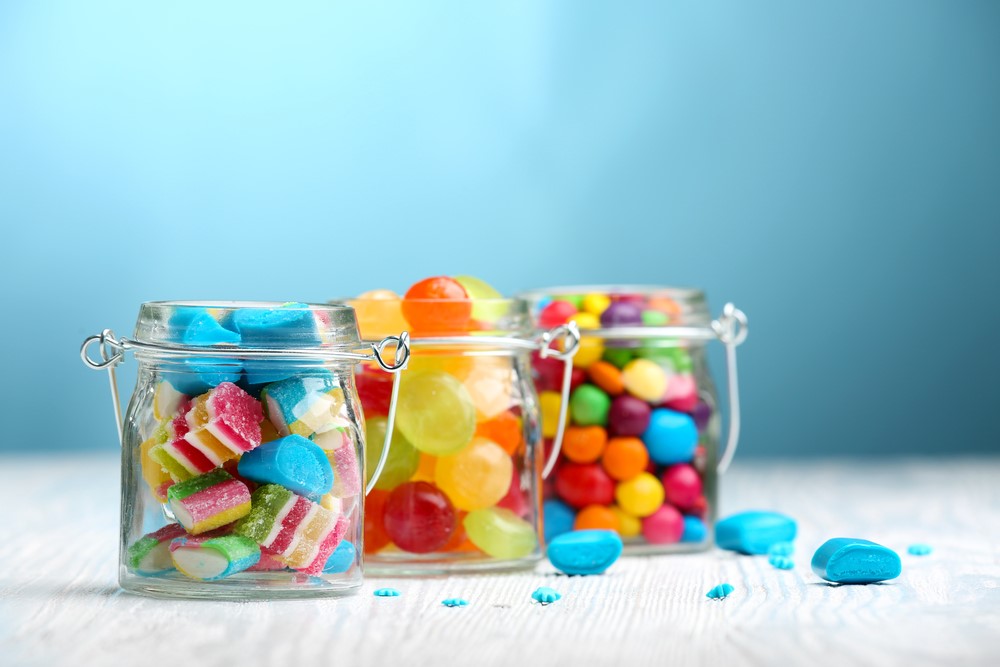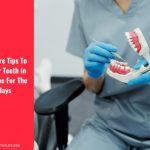 Everybody has a sweet tooth, and while it is good to indulge in our guilty pleasures, we must also look out for the consequences. Our smile is the gateway to fostering new connections and friendships. If we must take advantage of it, then we have to look after our teeth.
Everybody has a sweet tooth, and while it is good to indulge in our guilty pleasures, we must also look out for the consequences. Our smile is the gateway to fostering new connections and friendships. If we must take advantage of it, then we have to look after our teeth.
There are certain foods that work contrary to our oral health hygiene. It will also surprise you to know that some of these foods are what we take for granted.
In other to prolong the health of your teeth and those of your kids, start early to cut down the quantity of unhealthy food you consume. And when you do, ensure you adopt quick correctional measures.
1. Chewy candy
Chewy candy is a top culprit. What’s more, it is available at every children’s party and Halloween. The stickier the candy, the worse they are for your teeth. Extra chewy candy like caramels or toffee stays glued to the teeth for a long time, giving the mouth bacteria lots of time to feast gloriously on the sugar.
Bacteria oxidize sugar to make acid- phosphoric acid which wears down the enamel and causes tooth decay. When your children eat chewy sweets, ensure they brush their teeth thoroughly to remove traces of sugar. The same goes for you too.
2. Pickles
Vinegar provides the acid which is a key ingredient of the pickling process. It gives pickles that distinctive sour-salty quality, which unfortunately poses a potential risk for tooth decay. A study back in 2004, was performed to study the eating habits of English teenagers. It revealed that the solid food most closely associated with tooth decay was pickles. The report also showed that eating them twice or more daily increased the chances of tooth decay by 85%.
Not all of us eat pickles as much, however, but when you snack on them, be sure to keep it to a minimum. For more on the study, please refer to this post.
3. Soda
According to Dr. Cecilia Lulong, of Tigersmiledental.com, soda is a big enemy of strong healthy teeth. While many people are aware of the harmful effects of the sugar, little is known about the carbonated acids in the drink itself. They are, in effect, twice as harmful as the sugar. As a result, even the ‘sugar-free’ Coke Zero or Diet Pepsi still contain phosphoric and citric acids which erode the enamel when taken in large quantities.
If you must take soda, do so during meal times, instead of on its own. The food tends to neutralize the acidic effect on the tooth enamel, and the exposure levels are shorter.

4. Wine
You probably didn’t see this one coming. Here’s a general rule, any liquid that will earn you severe caution for spilling it on a white tablecloth has the tendency to stain your teeth. This makes red wine a proven culprit. It contains “chromogenic”, a substance that produces tooth-discolouring pigments. In addition, the tannins in red wine dry the mouth and cause a sticky sensation, exacerbating the stains.
Don’t imagine white wine is any safer either. Both red and white wine stains contain a corrosive acid that facilitates the penetration of stains from other drinks or foods. A study in 2009, showed that cow’s teeth were more susceptible to staining by black tea after they were first soaked in white wine.
The best way to protect your teeth is to avoid these foods altogether. Otherwise, minimize consumption and groom your teeth immediately afterward.
5. Sports drinks
If you’ve had some light or heavy exercise or feel jaded and are in the mood for something sweet and fizzy, a sports drink might seem the perfect choice at that moment. But watch out, Red Bull, Gatorade and other beverages in that category are acidic and could be harmful to your dental health.
In a study in 2008 at the University of Iowa, researchers measured the enamel wear level after steeping teeth in different beverages for a period of 25 hours. Lemon-lime Gatorade was found to have had the worst effect on the test sample teeth. Red Bull, Coke, Diet Coke were next with the most wear result.
6. Coffee
Remember those sticky brown stains at the bottom of the mug after you’ve drunk your coffee? Well, that’s about the same effect coffee drinking could have on your teeth over time. In fact, coffee stains appear to be more stubborn than tobacco stains and could be more resistant to tooth-brushing, according to one study that compared both types of stains.
About The Author:
James is a successful entrepreneur and health fanatic. As a psychologist he is interested in the mind-body link, and how self-image affects our thinking. He writes for a number of publications including Business.com, HuffingtonPost, and Entrepreneur.com




